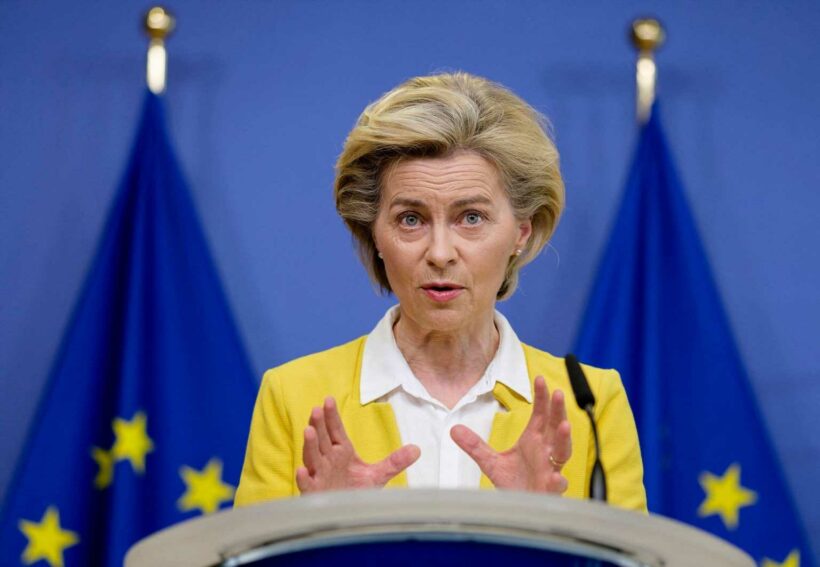THE EUROPEAN Union has insisted Britain must pay £40.8billion as part of its post-Brexit financial settlement.
The sum is nearly £2billion higher than expected and part of the money needs to be paid within six months.
The EU’s consolidated budget report for 2020 said that the money is owed under a series of articles which both sides agreed to as part of the Brexit withdrawal agreement.
The UK Treasure, however, insisted the Brexit divorce settlement remained within its previous central range of £35billion (€40.74billion) to £39billion (€45.40billion), according to the Financial Times.
The £40.8billion amount (€47.5billion) is significantly higher than expected.
In March 2018, the UK’s Office for Budget Responsibility predicted that the bill would amount to £35.5billion (€41.4billion).
An initial amount of £5.8billion (€6.8billion) is due for payment in 2021, the EU’s consolidated budget report added, with the remainder of the amount to be paid later.
A sum total amount of €47.5billion was mentioned in the report as "net receivable from the UK".
A trade and cooperation deal between the UK and EU was struck in December after more than four years of negotiations as Britain ended 47 years of EU membership.
On Tuesday, the European Union urged London to consider a Swiss-style veterinary agreement with Brussels on agri-foods to end a post-Brexit "sausage war" row over certain goods moving between Britain and its province of Northern Ireland.
Tension has mounted over trade arrangements for Northern Ireland, particularly for chilled meats, because the province's open border with EU member Ireland is Britain’s only land frontier with the EU and its vast single market.
It comes after Brussels branded Britain "weakened and isolated" in a swipe at Boris Johnson on the fifth anniversary of the Brexit vote last month.
Thierry Breton, the EU's vaccines tsar, said there were no upsides to leaving the bloc.
He admitted the UK had more success than the rest of Europe in regards to coronavirus vaccines, but maintained that "had nothing to do with Brexit".
The internal market Commissioner also said leaving had delivered "pretty much the opposite” of what was promised.
He told The Guardian: "Uncertainty around Brexit will clearly impact business and investor confidence long term."
Meanwhile, the EU's ambassador to the UK, Joao Vale de Almeida, questioned whether Brexit is done despite last year's trade deal.
He told The Times: "I don't know what our relationship will be in 20 years' time. I don't know what the EU will be like in 20 years.
"And maybe I don't know what your Union here will be like in 20 years' time. Who knows? So we have to be ready for change."
Source: Read Full Article




